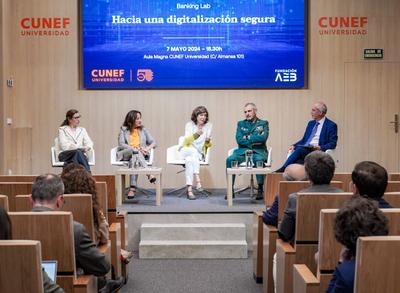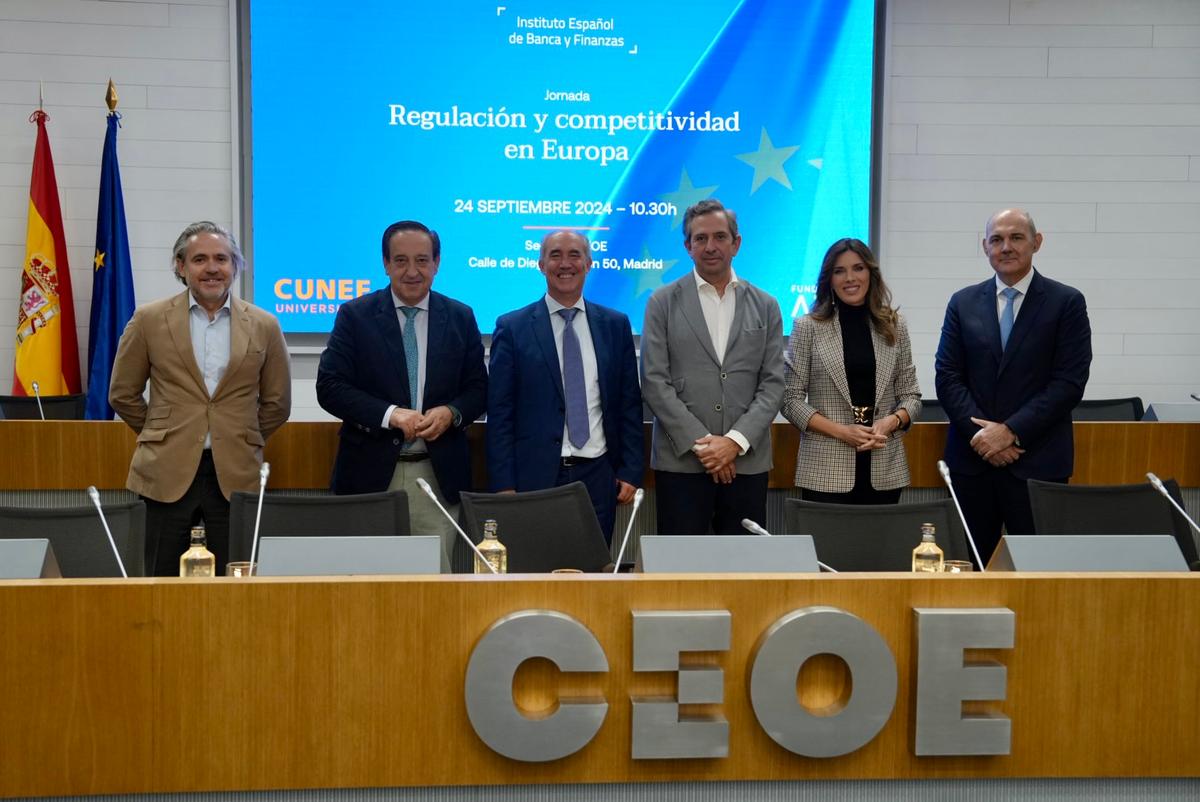
- Home
- Experts highlight the need for a comprehensive and effective strategy to bolster competitiveness in Europe during a session hosted by IEBF

Experts highlight the need for a comprehensive and effective strategy to bolster competitiveness in Europe during a session hosted by IEBF
24 September 2024
On Tuesday, 24 September, the Spanish Banking and Finance Institute, also known by its Spanish acronym, IEBF, hosted a session on “Regulation and competitiveness in Europe” that emphasised the need to promote a comprehensive and effective strategy to improve competitiveness. During the session, held at the headquarters of the CEOE (Spanish Confederation of Business Organisations), the speakers highlighted some key ideas:
- Europe is losing global prominence on different economic fronts, such as growth, innovation, digitalisation, productivity and competitiveness.
- The main threats to Europe’s appeal as an investment hub are high energy prices, environmental regulations, taxes and labour shortages.
- Both the CEOE and BusinessEurope have looked into a series of measures to improve European competitiveness; these include creating an efficient and effective regulatory environment, strengthening Europe’s single market, promoting investment, moving forward in the green transition process, consolidating and leading the digital transition, promoting innovation, enhancing social dialogue and the reinforcing foreign policy.
- “The Future of European Competitiveness”, a report prepared by the former President of the ECB, Mario Draghi, could help Europe focus on productivity, competitiveness and industry.
- Europe must address some urgent challenges in the near future, such as completing the Banking Union and the Capital Markets Union, building a true internal market for financial services, reviewing excessive regulation or listening to farmers’ requests.
The session was opened by the Vice-President of CEOE, Íñigo Fernández de Mesa. Francisco Uría, Senior Partner and Global Head of Banking at KPMG, Ángel Bautista, Director of Public Affairs at Repsol, and Pedro Barato, Chair of the Agrarian Association of Young Farmers (ASAJA), participated in a round table chaired by the journalist Verónica Sanz.
